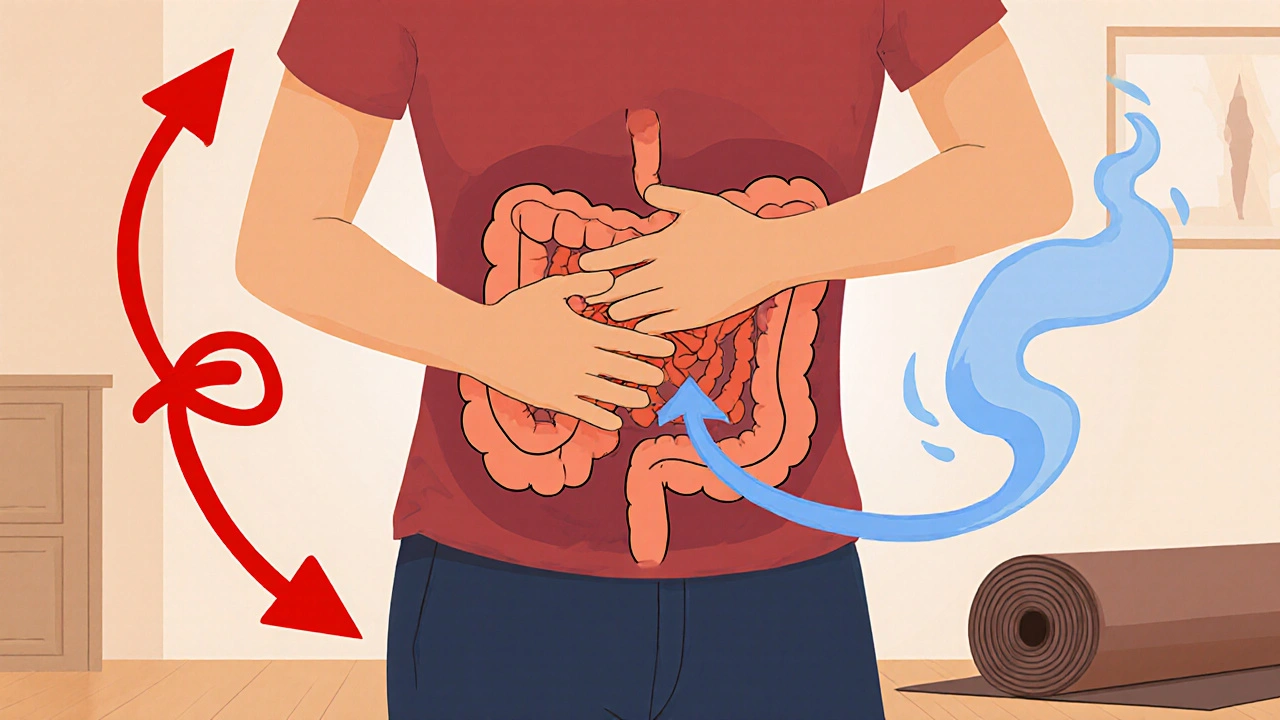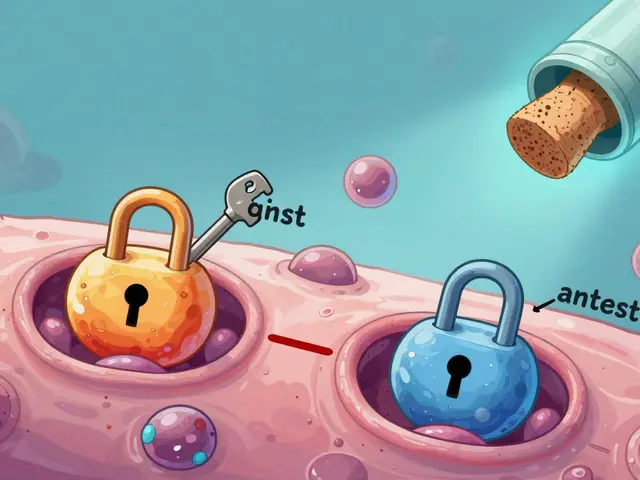Digestive health: what works, what to watch for
Stomach troubles are common, but some patterns should never be ignored. If you have ongoing pain, bright red blood in stool, unexplained weight loss, or repeated vomiting, see a doctor right away. Short-lived indigestion or a single bout of diarrhea usually clears up with simple care.
Small changes often make the biggest difference. Eat regular meals, add fiber slowly, drink water, and cut back on greasy, spicy, or very sugary foods. Fiber helps move things along: aim for whole grains, fruit, vegetables, and beans, but increase fiber over days to avoid gas and cramps.
Probiotics can help after a course of antibiotics or with occasional bloating. You don’t need an expensive product—look for a brand with live strains and at least a few billion CFUs. Try fermented foods too, like yogurt or kefir, if you tolerate dairy.
Quick fixes and when to see a doctor
For heartburn, start with antacids for immediate relief and H2 blockers or PPIs for regular symptoms, but use them the way a provider advises. Long-term use of acid suppressors isn’t a no-risk solution; talk to a clinician if you need them for more than a few weeks.
Constipation often responds to fiber, fluids, and gentle activity. Over-the-counter stool softeners or polyethylene glycol help many people short-term. If constipation alternates with diarrhea, or if symptoms begin suddenly after age 50, get tested.
Hemorrhoid pain and itching can improve with sitz baths, topical creams, and increasing fiber. If bleeding is heavy or doesn’t stop, see a provider—bleeding can have other causes besides hemorrhoids.
Some medicines change digestion. Antibiotics can cause diarrhea; erythromycin can speed up your gut and cause cramps; misoprostol can cause cramping and diarrhea too. If a new medication starts GI symptoms, call the prescriber before stopping on your own.
Related, useful guides on KiwiDrug.com
"Pilex: Natural Hemorrhoid Relief..." explains what people use for hemorrhoid comfort and real tips for care.
"Heartburn and Gallstones: The Surprising Link..." looks at when reflux might be related to gallbladder issues and what to check with your doctor.
"Harness the Health Perks of Turmeric" covers how turmeric can help inflammation and digestion and how to use it safely.
For medication-focused info, try "Erythromycin: Uses, Side Effects..." and "Understanding the Potential Side Effects of Misoprostol" to learn real side effects that affect digestion.
Want to buy meds online safely? Read "How to Safely Buy Fosfomycin Online" and our online pharmacy guides before placing an order.
Use these posts as starting points, not substitutes for a medical check. If symptoms are new, severe, or worrying, get medical care. Small, consistent habits plus quick action when needed will protect your digestive health far more than one-off fixes.

How Yoga and Meditation Relieve Stomach Ache Symptoms
Discover how gentle yoga poses and simple meditation techniques can calm stomach‑ache, improve digestion, and reduce stress‑related gut pain.
read more
Pancrelipase and Gastrointestinal Disorders: What You Need to Know
Pancrelipase is becoming a game-changer for folks dealing with gastrointestinal disorders. This enzyme supplement helps break down fats, proteins, and carbohydrates, making digestion a whole lot easier. It's especially valuable for those with pancreatic insufficiency, chronic pancreatitis, or cystic fibrosis. Knowing how and when to use pancrelipase can drastically improve your quality of life. Let's explore how this supplement works and what you should keep in mind.
read more




